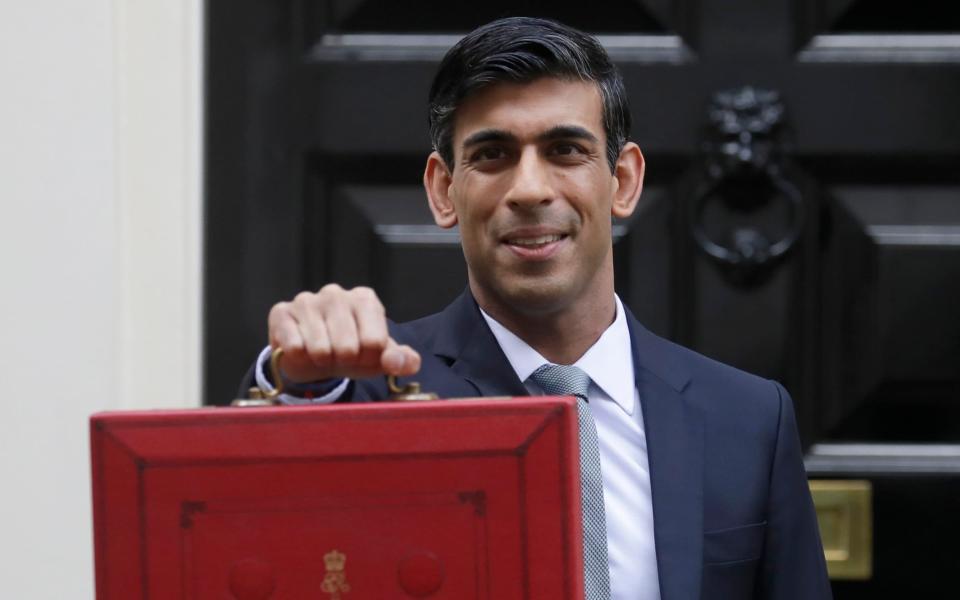Tax hikes risk destroying recovery, economists warn

Tax hikes risk trashing the economic recovery so the Chancellor should wait for several years before trying to plug the hole in the public finances, economists have told MPs.
Treasury officials fear the record deficit of more than £300bn this year is dangerously huge, requiring a plan to patch up the books, potentially including tax raids on pensions and petrol.
But action on any serious scale could threaten to choke growth, undermining the economy and so in turn damaging public finances.
Paul Johnson, director of the Institute for Fiscal Studies, urged the Chancellor not to hike taxes for at least two or three years.
“We are only six months into this crisis, we still don't know what is going to happen next in terms of Covid. Even if we don’t get second waves we are not very clear on where the economy is going to go, but we are pretty clear that it is going to be weak for some period,” he told the Treasury Select Committee.
“So I certainly don’t think we should be looking at tax rises this year, and I would be surprised if we see significant tax rises next year.
“If we do need higher taxes we are probably looking at bringing them in two to three years hence rather than in the next six months to 18 months, once, we hope, the economy is firing on all cylinders, or close to it.”
When the time does come, he said hikes may have to be made via national insurance, VAT or income tax to raise enough money to repair the finances.
Rishi Sunak is expected to borrow more than £300bn this financial year, with the coronavirus pandemic leaving the Treasury with a gap of around £60bn per year in the longer-term, according to forecasts from the Office for Budget Responsibility.
Gemma Tetlow, chief economist at the Institute for Government, said the Chancellor should consider his options, set out a long-term objective of reducing the deficit, and gradually prepare the way for future tax hikes.
“Covid may well have knocked a hole of £60bn in the public finances in the medium-term. That is a huge number, and trying to announce a package of tax measures that would fill that would be very significant, and the public hasn’t been talked through the necessary tax rises,” she said.
“Trying to announce specific measures very quickly runs the risk that you end up being backed into a corner of the most politically feasible tax changes which are often not the most sensible economically.”
She said widening the number of goods subject to VAT could be an option, with products such as food and children’s clothes currently exempt.
But acting too soon could be damaging: “At what point do you implement those tax changes? That need not be very quickly. There may well be a long period of time when the country needs fiscal support to recover from the Covid crisis, if that continues to linger.”
If the recovery is stifled by tax rises, it could have the perverse effect of making the Treasury’s financial position worse, because a smaller economy will generate less revenue for the Exchequer. Cutting off growth risks higher unemployment, less spending in the private sector and lower profits for businesses, which all mean there is less activity to tax.
Mike Brewer at the Resolution Foundation called for the Chancellor to start setting out a longer-term plan.
“What the Chancellor should be doing in his Budget is setting out the fiscal framework, telling us how he plans to restore the public finances to something sustainable, but in the medium run. We should not expect tax rises to be happening in the next year,” he said.
“Because the economy is so uncertain at the moment and looks to be weak for a long period of time, the efforts to close that £60bn gap should not be happening for a few years yet.”
Philip Booth at the Institute of Economic Affairs, said the economy could be undergoing serious long-term changes, so now is the time to consider the structure of the tax system and the ways it weighs down the economy, rather than hiking taxes.
“It would be better to have a settled fiscal framework… in which long-term planning can take place for what might in many ways be a new world,” he said.
“You don't necessarily have to implement it immediately, but the thinking and the planning should be done quickly.”

 Yahoo Finance
Yahoo Finance 